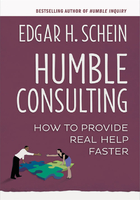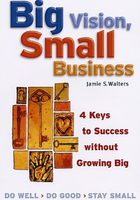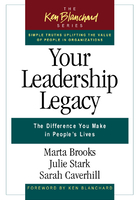Designing Your Total Life
The—I wouldn't say happy people but satisfied, contented—people I knew were more people that lived in more than one world. Those single-minded people—you meet them most in politics—in the end are very unhappy people.[1]
On the morning of April 11, 2005, seven months to the day before he died at the age of ninety-five, Peter Drucker told me something that riveted me. I was interviewing him in Claremont, California, on the campus of the Peter F. Drucker and Masatoshi Ito Graduate School of Management at Claremont Graduate University. With cameras whirring in the background, we videotaped the interview. As I listened to his responses, the phrase “total life” popped into my head. I remarked to him: “What I think I'm hearing from you, at least partially, is that one needs to look at one's total life, one's family, friends, one's various organizations, and perhaps not be too focused on any one thing.”
It was then that he gave me the answer, quoted above, that became the cornerstone of this book. He added that there is little room at the pinnacle, and it is difficult to last long at the top. The answer is to spread out your time and talents on more than one activity, and to live and work among different groups of people, so that you are not overly reliant on any one thing for your happiness, sense of worth, and so on.
This seemingly simple idea has myriad implications. For example, if you have a setback in one area it won't destroy you. But the idea goes deeper. By living in more than one world, you constantly meet different people who can enrich your life. You learn more about how other people think, live, and work. You can gain different insights into yourself as a person. You become a more multidimensional person who is not overly dependent on any one particular area of life. You consider life not as a series of compartments, but as an ongoing series of activities, achievements, and commitments that give you a sense of meaning and fulfillment.
Peter Drucker drew strength, energy, and a sense of fulfillment from his three-pronged career: writing, teaching, and consulting. He had a wide circle of friends and professional contacts worldwide. He was a valued mentor to many former students and others. He wrote about and consulted for organizations in both the business and nonprofit worlds. The example of his work and life make him a great role model for today's knowledge workers, who feel overworked and out of control. In this chapter, we'll consider some the benefits and challenges of living in more than one world, and look at some of Drucker's bedrock principles that will help us lead more multifaceted lives.
The Knowledge Worker
No one but the knowledge workers themselves can come to grips with the question of what in work, job performance, social status, and pride constitutes the personal satisfaction that makes a knowledge worker feel that she contributes, performs, serves her values, and fulfills herself.[2]
IN THE LATE 1950s, toward the end of the Eisenhower era and before the profound changes in society of the 1960s, Drucker identified a new class—the knowledge worker—which he defined as people who work with what they know and can learn and who thus own and control their own means of production. Their knowledge is portable and not dependent on any particular employer or industry.
He saw the coming shift away from manual or unskilled work to the type of work we do more with our brains than our hands. He had the foresight to see ahead of time the often-painful changes in the economy as it moved from a dependence on manufacturing jobs to knowledge-based work. He alluded to this change in making a reference to his 1946 book Concept of the Corporation, which was based on an intimate, two-year look at the inside activities of General Motors: “The automobile factory, which I knew and studied during World War II and shortly afterwards, is gone. That today is a number of computerized work stations.”[3]
Some contemporary examples of knowledge workers are people in the computer and information technology industries, teachers, doctors and other health-care professionals, scientists, lawyers, librarians, clergy, and people who work in the media. The concept of the knowledge worker is a powerful one, because it isn't tied to one definition or one group of people. The work of all people in this category has become even more crucial since Drucker articulated the concept, long before the era of personal computers, the Internet, and the World Wide Web.
Although managers were the ostensible audience for most of his books, Drucker had a following beyond management, and his work and ideas are too important to be appreciated only by managers. The 2008 publication of his Management: Revised Edition (the update of the “bible” of his books, Management: Tasks, Responsibilities, Practices, originally published in 1973) showed an emphasis on the individual knowledge worker that had been absent from the original book. The last part of the book is entitled “New Demands on the Individual,” beginning with the chapter “Managing Oneself.”
ASK YOURSELF
What knowledge do I apply to work? If I work in more than one job, do I apply different knowledge to each?
Beginning with his first book, The End of Economic Man, in 1939, and continuing for the next three decades, Drucker in his books focused more on business organizations and societal issues than individuals; the major exception was his classic from 1967, The Effective Executive. Even this had a business orientation, with an emphasis on how executives could run organizations not just efficiently but effectively. Doing the wrong thing efficiently is counterproductive. Yet beginning with The Age of Discontinuity in 1969, more space in his books was explicitly given over to the development of the individual as he began to flesh out the concept of the knowledge worker. In that book, he writes, “Today the center is the knowledge worker, the man or woman who applies to productive work ideas, concepts, and information rather than manual skill or brawn.”[4] At the time it was first published, many more people were going to college and computers were becoming more sophisticated. The seeds of the Internet were planted in the same year the book was published. Microsoft was formed not long after, in 1975, and the early years of personal computers helped further the concept of the knowledge worker. Today it is difficult to think back to the late 1960s and see just how radical this idea really was.
DRUCKER'S LIFE AND WORK
One reason Drucker's ideas resonate so powerfully for knowledge workers is that he is a perfect prototype of the species. For many years, he lived a complex life, juggling multiple careers as a successful teacher, writer, and consultant, and made it work. He thought through his own contributions, and said it was important for his readers to be thoughtful about their own lives. His writing evolved, and he kept up with world events and remained relevant and sought-after deep into old age. He wrote not just about management, for which he is best known, but about society in general.
Peter Drucker's Extraordinary Life
Here I am, 58, and I still don't know what I am going to do when I grow up. My children and their spouses think I am kidding when I say that, but I am not. Nobody tells them that life is not that categorized.[5]
WE CAN'T IMITATE THE details of Peter Drucker's extraordinary life, but we can be guided by them. The outlines of his personal story are fascinating yet daunting. He and his wife, Doris Drucker—a remarkable person whom we'll meet later in this book—were married for sixty-eight years, with four children and six grandchildren. He published more than forty books and hundreds of newspaper, magazine, and journal articles. He was a longtime columnist for the Wall Street Journal, and often contributed to such prestigious publications as the Atlantic Monthly and the Harvard Business Review. In 2002, President George W. Bush awarded him the Presidential Medal of Freedom, the nation's highest civilian honor.
From 1971 until his death in 2005, he taught at the Peter F. Drucker and Masatoshi Ito Graduate School of Management at Claremont Graduate University, in Claremont, California, although he stopped teaching formal classes in 2002. The school was named after him in 1987, and the name of Ito, a major benefactor and admirer of Drucker, was added in 2004. As mentioned in the preface, Drucker was an in-demand consultant for both corporations and nonprofit organizations.
ASK YOURSELF
What patterns do I see in the outlines of Drucker's life? How could I apply any of them to my own life now, or soon?
In these details, we can see the outlines of what made him so successful, and how we can emulate him. He built variety into his life by working with different types of organizations and people. His distinct worlds complemented one another, so that what he learned in one area he could apply in another. His experience in working with organizations would inevitably find its way into the pages of his books and articles. Drucker had a wide range of friends from the worlds of business, nonprofits, academia, and the arts. There is nothing stopping us from cultivating a similar group of talented and diverse people who are a regular part of our lives.
DRUCKER'S LIFE AND WORK
Drucker kept in contact with many of his former students long after they graduated. Many phoned or visited him, and many more saw him at Founder's Day, the alumni gathering each November at the Drucker-Ito School. Until the final years of his life, he would randomly pick names of former students and call them to see how they were doing. He also asked them if, in retrospect, the school had been effective in their education.
Multiple Worlds, and Beginning Your Total Life List
What matters is that the knowledge worker, by the time he or she reaches middle age, has developed and nourished a human being rather than a tax accountant or a hydraulic engineer. Otherwise, a few years later, tax accounting or hydraulic engineering will become awfully stale and boring.[6]
SELF-DEVELOPMENT IS AN IMPORTANT theme in Drucker's books, even if it's not the one for which he is best known. When he advised managers, he was careful to say that the individual manager must develop as a whole person, and the same goes for the people he or she manages. In the upcoming chapters of this book we'll consider what constitutes your core competencies—the things you do with a sense of excellence and workmanship—that represent the best of what's inside you. We'll also explore what other activities fit in with this core sense of excellence. This means possibly finding a parallel career to what you are now doing, a type of work that may one day become your new core. We'll also look at the importance of continuous learning, which kept Drucker's mind active and alert for so many years.
ASK YOURSELF
Is there a mentor or a friend I could contact now who could give me ideas on how to add more multidimensionality to my life? Is there someone I could contact to offer assistance in defining life goals or priorities to explore new directions?
Closely allied to learning is the power of teaching. There are many benefits to adding teaching to the mix of your life. As Drucker said, you can learn a lot from your students besides what you teach them. A student has a unique personality and set of life experiences and skills that can be quite illuminating. As Drucker often pointed out, teaching something is often the best way to really learn a subject well. Teaching may well turn out to be an ideal parallel career, as well as a form of volunteerism—for instance, if you volunteer as a teacher in a church or other religious institution.
Another way to live in more than one world and increase your multidimensionality is through the concept of generosity. For many people, this means volunteering in nonprofit organizations. More people are also starting nonprofits, using skills they learned in a previous or parallel career, and becoming social entrepreneurs. For some people, generosity means becoming a servant leader, in either for-profit or nonprofit organizations. Servant leaders put the needs of their followers ahead of their own, and make sure that they have the tools to accomplish their mission. For still others, generosity means mentoring. Also key to living a holistic life is having serious outside interests that provide a sense of fun, enjoyment, and fulfillment.
To consider your total life, and figure out ways to develop a different, improved life, start by giving yourself an honest reality check of where things stand now. Begin by brainstorming to determine the sum total of your life, listing the people with whom you associate, and your various work and nonwork activities. You can also broaden it to include future goals and aspirations for people and activities in your life. “The effective people I know,” Drucker said, “simply discipline themselves to have enough time for thinking.”[7] This kind of self-assessment can be a challenge, but Drucker believed that thinking was hard work, which is why many people either devalued it or rarely did it seriously. We'll start on this at the end of this chapter in the exercise called “Hints for Creating Your Total Life List.” It will be an ongoing activity throughout the book, and something you can continue creating long after you have finished reading.
DRUCKER'S LIFE AND WORK
In Drucker's life, many of his outside interests, such as his appreciation of art and music and love of literature and history, found their way into his writing and teaching. He was a recognized expert on Japanese art, and taught this subject for several years at Pomona College while he was also teaching management.
The Benefit to Others
Knowledge workers therefore need to develop, preferably while they are still young, a noncompetitive life and community of their own, and some serious outside interest—be it working as a volunteer in the community, playing in the local orchestra, or taking an active part in a small town's local government.[8]
LIVING IN MORE THAN one world can be an excellent strategy for many professionals. Consider each possibility in a variety of dimensions. Think continually of your options, while being mindful of possible pitfalls and drawbacks. This kind of life is rewarding, but it takes time and effort. There will inevitably be periods of frustration, but you'd have those anyway if you were living in just one world.
ASK YOURSELF
Who benefits from what I do in my work? Who are some other people I can serve in some way in my present job or through volunteer work?
There are many advantages to adding other dimensions to your life. Drucker often pointed out that you could obtain leadership opportunities and experience that might not be available in your present job by volunteering in a nonprofit organization. You can combine leadership opportunities with work-related fulfillment by pursuing leadership positions within professional organizations related to your work. If you have more than one dimension to your work with a parallel career, you have multiple chances for these kinds of positions. Professional organizations are often desperate for people who will take the lead in committees, annual conferences, and so on. You can develop yourself as a person and as a professional while giving back to your profession and helping others.
DRUCKER'S LIFE AND WORK
The more worlds you inhabit, the more networking opportunities you have. The complementary nature of some of these worlds can be impressive. Drucker applied in one area, such as writing, what he learned in another, such as teaching or consulting. He considered his consulting practice to be a laboratory for his ideas. He met and interacted with different people depending on whether he was teaching, writing, or consulting. Though he maintained a select, limited number of consulting partners—many of whom remained close friends—he had a fresh crop of new students every semester for sixty years.
Drucker said that a key reason for seeking out more responsible positions in a nonprofit organization was the chance to be a more important person, whose work really mattered. This is important not just for the knowledge worker, but also for his or her family. It adds to a sense of self-worth and self-respect. Such work can also be more fulfilling than your daily job, because you can see the results of your labor more easily, and it aids a cause of your own choosing. Another important factor is that different sides of your personality and talents are elicited by the different dimensions in your life.
There are other tangible advantages to living in more than one world:
image You live more fully in the present while preparing for the future, but not being obsessed by it. By living in multiple dimensions, you'll have less time to rumi-nate on mistakes and regrets of the past, and you'll know that some of your actions are being taken to create your future life.
image By being multidimensional, you strengthen your sense of purpose, meaning, and fulfillment. You focus on spending time on activities and people that contribute to these areas.
image You deliberately choose activities that help make a positive difference in the lives of other people.
image And, as a bonus, you'll rarely be bored!
Drucker had a strong humanistic streak. By putting the spotlight on others, by showing his interest in them, by his concern for the outside world in all its forms, he made himself a better person throughout his life. These activities also helped keep him relevant until the end of his long life. His routine and sincere expressions of gratitude to others were also noteworthy. Most of us have many things for which to be thankful, and the people we encounter rarely receive the thanks that are often due.
The Challenges of Self-Management
In effect, managing oneself demands that each knowledge worker think and behave like a chief executive officer.[9]
THIS QUOTATION IS MORE than just a throwaway comment. If you think of yourself as CEO of your own life as a knowledge worker, you must make decisions and take actions based on more than what you think is best for you. Your thoughts must extend to the implications and effects on your colleagues, the organization itself and its stakeholders, as well as family and friends.
Drucker often claimed that self-management is a revolution in human affairs. He believed that history will show this revolution to be even more powerful than the changes brought on by technology—a powerful claim that can be judged only in retrospect. Until recent years, because of lack of mobility between and within jobs, and because of shorter life spans, self-management wasn't the necessity it has become. People live longer now, but organizations don't necessarily last as long as they once did.
But what did Drucker mean by self-management, and why is it relevant for living in more than one world? Drucker saw this as a self-directed, ongoing area, much as the management of an organization is ongoing and all-pervasive. Above all, it requires self-knowledge and a certain degree of introspection. In his major statement on this theme, the chapter “Managing Oneself” in the 1999 book Management Challenges for the 21st Century, Drucker presented these areas as crucial to managing yourself:
1. Self-knowledge regarding your values, strengths, and work habits
2. Finding where you belong in an organization, and which organization is right for you
3. Deciding on what you will contribute to your work and to the world
4. Taking responsibility for relationships
5. Planning for the second half of your life[10]
The prospect of managing yourself and living in more than one world can be daunting. For many people, it can become a goal or aspiration, rather than something to do immediately. Think of it as something to work toward, or to do incrementally. There are pitfalls to consider: You could possibly spread yourself too thin, and not give enough attention to an important aspect of life. You may make more money, but it's possible you'll make less if you don't concentrate 100 percent on one job or career. While it's wonderful to get to know new people in your various worlds, that means more people are competing for your time and attention. One of the most serious potential drawbacks is a possible inability to find the necessary time to work on your various activities because of the competing demands of each area.
ASK YOURSELF
Will I dilute my strength if I develop new parallel careers, or additional outside interests or activities? Have I ever had something in my life that I wanted to do for a long time, but that didn't work out the way I wanted it to? If so, what can I learn from the experience?
It is worth remembering that the one world in which none of us lives now or will in the future is a perfect or ideal world. We often have to make the most of what we have while we still have it. If we're waiting for the perfect time to start a new venture, or add new people to our lives, it is not likely to happen. It's better to take advantage of an imperfect world in aiding our personal transformations.
DRUCKER'S LIFE AND WORK
Sometimes new dimensions of one's life do not work out as planned. This happened to Drucker, who had a longtime desire to write novels. Two were published when he was in his seventies: The Last of All Possible Worlds (1982) and The Temptation to Do Good (1984). Both had tepid sales and indifferent reviews, and are now out of print. During an interview at his home in Claremont in 2003, I asked if he would decide to write novels again. His poignant reply: “It decided; I had no idea. I lived with the characters of those two novels for many years before I wrote the novels. I don't live with any characters [now].”[11]
Your Outside Interests
“Loafing” is easy, but “leisure” is difficult.[12]
GETTING THE MOST OUT of your nonwork time can be challenging. It's too tempting and easy to spend the hours away from the job passively. One of the things that contributed to Drucker's extreme longevity and continuing relevance was the fact that he was so well-rounded, with outside interests that he was able to incorporate when necessary into his work. Drucker knew that having serious interests beyond your job that also provide a sense of fun is a key aspect of living in more than one world.
In his own life, many of these outside interests, such as his appreciation of art and music and his love of literature and history, found their way into his writing and teaching. Whether or not you are able to draw on outside interests in your job, they are important as a way of delineating your time away from work. Diverse interests contribute to being well rounded and make you a more interesting person. They stimulate your creativity, which nourishes and enriches all areas of your life. There are many other areas in life where we can fulfill Drucker's idea of going beyond the world of work for personal development.
As important as work is, we put too much pressure on it to supply our complete sense of fulfillment. Other aspects of living, such as volunteering or teaching, provide further areas for fulfillment. In many cases the pleasure and sense of achievement afforded by outside interests may make all the difference in how happy we are, especially if work becomes a drudgery. Drucker noted how the expectation of satisfaction from work has both positive and negative connotations, because it's not always possible. Many people find that their outside interests dovetail well with their careers; for instance, drawing on their knowledge and love of music to take on a parallel career as a music teacher, or member of a band. Others who are talented in art may be able to show their artwork in local galleries.
ASK YOURSELF
What have I had to learn to get the most out of my leisure opportunities? Did it involve taking formal lessons or classes? Is there any nonwork area of my life in which I could be said to be a master or amateur expert?
In Management Challenges for the 21st Century, Drucker wrote that a key tenet of self-management is developing a second major interest in life, preferably early in your career. He distinguished between this type of serious interest and a hobby. He broadened this idea beyond just having outside interests to other areas, such as second or parallel careers, or engaging in social ventures such as volunteerism or social entrepreneurship.
Beyond your daily employment, it is important to focus on things that may bring you pleasure, satisfaction, and a heightened sense of self-worth and growth, without their becoming a career. You engage in these activities for their own sake, even if they do have added benefits such as providing leadership experience. As Drucker so often said, all outside interests can provide a buffer against the inevitable setbacks and disappointments in life. They can provide you not only with a stimulating way of spending your time and a sense of fulfillment and satisfaction, but also a community of people distinct from your family and work colleagues.
As with other aspects of living in more than one world, meeting and interacting with new and different people is a cornerstone benefit. In Managing the Non-Profit Organization: Practices and Principles, Drucker wrote that it was “important, I think, for people who work in an organization to have an outside interest, to meet people and not just become totally absorbed in their own small world. And all worlds are small worlds.”[13] In 1952, Drucker wrote “How to Be an Employee,” a charming article based on an ideal but undelivered college commencement address, for Fortune magazine (it was later reprinted in the 1977 book People and Performance: The Best of Peter Drucker on Management). Besides containing valuable work and career advice couched in a highly accessible style, the article is remarkable for its focus on outside activities, given that it was written in the gray-flannel-suit, organization-man era. “But it is important in this ‘employee society’ of ours,” he writes, “to have a genuine interest outside the job and to be serious about it.”[14] Also notable is that it was written well before Drucker identified the class of knowledge workers.
DRUCKER'S LIFE AND WORK
Drucker integrated his outside interests into the fabric of his life. His love of reading, his extensive travels, and the study of history, literature, music, art, philosophy, and religion were expressed in his writing and his teaching. He was like a human hyperlink, referencing many disciplines within a single paragraph, and finding a way to tie them together so they made sense and conveyed his point.
Another way that Drucker integrated his outside interests with work carried over to his consulting. He was known to take clients on outings when they visited him in Claremont for consultations. Because Claremont is less than forty miles from Los Angeles, he was able to take advantage of a variety of settings for a combination of fun and education. If clients were there for several days, he might have taken them one day to a museum, another to a Los Angeles Dodgers baseball game, and one evening to the Los Angeles Philharmonic. This sense of cultural variety is something we can apply in our own lives, either on our own, or with friends, families, and colleagues.
Since Drucker returned to this theme of outside activity off and on in books and articles for the rest of his life, it means that he wrote about this subject for more than fifty years. In the same 1952 article, he advocates doing something of your own choosing, with its own importance to you, where you “can be, if not a master, at least an amateur expert.”[15] Some of his suggestions include studying local history, making music or furniture, and other pastimes.
The key thing is to pick something—or more than one thing—that interests you and that gives you pleasure and satisfaction. Some of these areas tap into material we will cover more fully in this book, such as teaching and learning in Chapter 5, and volunteerism in Chapter 4 For example, if one of your major outside interests is making music, chances are you will be engaged in some kind of ongoing training or study of it, and may be teaching or giving lessons for pleasure. The same goes for painting or drawing, sculpture, or other forms of art. If reading and writing are part of your interests, teaching and learning may be a crucial part of developing your interest and ability in both of these related areas.
Ideas that we will cover in upcoming chapters, such as time management and determining priorities (Chapter 2) and planning for the future (Chapter 3), will come into play in your pursuit of outside interests. One of the biggest obstacles is finding and making the time. If you are focused on your total life, and not too fixated on any one thing, it becomes easier to find and work with this discretionary time.
Maturity and Your Outside Interests
The person who will make the greatest contribution to a company is the mature person—and you cannot have maturity if you have no life or interest outside the job. [16]
DRUCKER'S INTEREST IN MUSIC demonstrates how an outside interest can still have a strong impact on your main work. When describing management and career placement during an interview, Drucker illustrated his example with references to orchestra members playing Brahms. He likened the orchestra conductor to a manager. As we will discover in Chapter 2, the opera Falstaff by Verdi became a symbol for Drucker's lifelong quest for excellence and perfection.
In The Effective Executive, he uses Mozart to illustrate the dangers of multitasking. He says that Mozart was the exception among major composers, in that he could work simultaneously on different compositions and still turn out masterpieces. Bach and Handel, he says, could work on only one piece of music at a time. The lesson: “Executives can hardly assume,” he writes, “that they are ‘executive Mozarts.’”[17]
ASK YOURSELF
Are there similar analogies I can draw in my own life from the world of the arts, as Drucker did with his idea of “executive Mozarts”? Does my reading and experience of history, the arts, and other subjects dovetail with my main work, and, if so, in what specific ways?
Drucker also stressed the importance of being a regular reader, no matter what subject matter you choose. He was a voracious reader, and his devotion to reading stood him in good stead throughout his life. It all comes down to asking: How are you going to spend your time and feed your mind? Drucker took pleasure in learning from the great minds of all ages, and it's an example anyone can follow. He was more likely to mention his reading of the Bible or novelists such as Jane Austen—one of his all-time favorites—than business books.
DRUCKER'S LIFE AND WORK
One of Drucker's greatest outside interests was art. He was not an artist himself, but he studied, wrote about, and collected Japanese art, even teaching it at Pomona College, part of the Claremont schools. He and his wife of sixty-eight years, Doris Drucker, developed a major collection of Japanese art, the Sanso Collection, which has gone on traveling exhibitions. Drucker discovered Japanese art by a fluke: while working in London in June 1934, at the age of twenty-four, he ducked in out of a rainstorm to see a traveling exhibition of these paintings at Burlington Arcade. He stayed for two hours and became hooked for life.
He wrote this observation in a Japanese catalogue for the Sanso Collection: “Not only had I discovered a new universe of art. I had discovered something about myself; I had experienced a touch, a small touch to be sure but a genuine one, of enlightenment.” [18] Drucker's introduction to an intense interest in Japanese life and culture became one of the hallmarks of his professional career. His interest was reciprocated by people in Japan, who have long been intensely interested in Drucker's work.
Keeping Active and Healthy
Only you can keep yourself healthy. That's new talk. It's old wisdom. Hippocrates said to drink only water from the spring, go to bed early, don't whore around, eat sparingly and nothing fat. People never listened to Mr. Hippocrates, because they were not paying a fee.[19]
EVEN INTO OLD AGE, Drucker maintained marvelous physical stamina. One of the reasons he gave for his longevity was the need to keep up with the pace set by his wife, Doris. She maintains a regular regimen of exercise and still plays tennis in her mid-nineties. She gave up hiking only in her early nineties. Regular exercise and taking care of your body are ways to get the most out of living in more than one world. If you're going to be multidimensional, you'll need energy and stamina not only for your work, but also for your outside pursuits. If you're feeling mentally or physically drained, you won't be able to focus your mind and body on the things you want to do. Fortunately, knowledge workers have many opportunities to nurture their health and strength. Some workplaces offer discounted or subsidized memberships to gyms. You can also take advantage of amateur sports opportunities. There are many classes and private teachers in such mind-body areas as yoga, meditation, and the Alexander Technique. The latter, though less well known, is helpful for a better, more productive use of your body through release of tension and improved posture. It has been particularly helpful to actors, singers, and musicians (you can learn more at www.alexandertechnique.com).
ASK YOURSELF
What physical activities have refreshed and energized me in the past? What changes could I make to my daily and weekly routine to incorporate more physical activity, exercise, and wellness activities?
DRUCKER'S LIFE AND WORK
Although Drucker tended not to give too much advice on how to maintain physical health and well-being, one of the reasons for his longevity was his exercise and active leisure pursuits. He was a regular swimmer who had a pool in his back yard and for many years, until his knees gave out, an avid walker and an active mountain hiker.
Chapter Question Summaries
The Knowledge Worker Think about what knowledge you apply to work, especially if you have more than one job.
Peter Drucker's Extraordinary Life Think about the patterns you perceive in Drucker's life, and how they might apply to your own.
Multiple Worlds, and Beginning Your Total Life List Think about the people who can help you gain more multidimensionality in your life.
The Benefit to Others Think about the people who benefit from your work, and how this can be spread to even more people.
The Challenges of Self-Management Think about whether or not you'll dilute your strength by branching out into other areas of life, and whether setbacks in the past can be a valuable learning experience in the present.
Your Outside Interests Think about what's involved in getting the most out of leisure opportunities, including whether or not you should take formal lessons or classes.
Maturity and Your Outside Interests Think about how Drucker incorporated his love and appreciation for literature and music into his life, and if there are or could be parallels in your own.
Keeping Active and Healthy Think about ways to change your routine to incorporate more physical activities and exercise, especially if your lack of stamina is hindering the possibility of taking on more dimensions in your life.
Chapter Recap and Next Steps
In this chapter we have laid the foundation for living a life of more than one dimension. We have covered:
image Drucker's concept of the knowledge worker, and who fits in that category
image How Peter Drucker's life can be a guide and inspiration for our own
image How self-development can be tied to living in multiple worlds
image Developing interests that also benefit other people, including the advantages of being multidimensional
imageThe definition of self-management, and why you should think of yourself as the CEO of your life
image How outside interests stimulate and nourish all areas of your life
imageThe importance of outside interests to your growth as a mature person
imageThe need for physical stamina and wellness to live your life to the fullest extent
In Chapter 2, “Developing Your Core Competencies,” we will look at a toolbox of techniques to help you live more fully in more than one world. These include strengthening your sense of personal excellence and achievement, determining priorities, and the power of self-reflection.
Hints for Creating Your Total Life List
Drawing up your Total Life List will take some time, so think of it as an ongoing activity. If you are on social networking sites such as Facebook or LinkedIn, some of the work will have been done for you. Here is a framework to get you started and for your ongoing additions.
Sections of your list
1. Immediate family (current and future)
2. Extended family (current and future)
3. Closer work colleagues (people you interact with most often in the workplace)
4. Friends (current and future goals)
5. People in your various professional networks (current and future goals)
6. Various places of current employment and (briefly) what your work entails (current and future goals)
7. Professional affiliations and associations (current and future goals)
8. Ongoing learning activities (current and future goals)
9. Teaching (if any) (current and future goals)
10. Volunteer activities (current and future goals)
11. Work with nonprofit organizations, or social entrepreneurship (current and future goals)
12. Mentoring (current and future goals)
13. Outside interests of all types, including areas such as sports leagues, amateur interest societies, religious/ spiritual activities or study, book groups, or creative areas such as writing, art, or playing music (current and future goals)
14. Exercise and other mind-body activities (current and future goals)
As part of your future goals in some of the above categories, you may want to consider incorporating elements from your past—people and/or activities—that were valuable for you and that you'd like to reintroduce in the future. This can be a way of reconnecting with old friends or family members with whom you've lost touch, getting back into activities that have been dropped, or possibly looking into new educational opportunities at your alma mater.
This list can be as specific, simple, or elaborate as you'd like to make it. You can do it on paper or on computer. Consulting the list as often as you like will give you a valuable snapshot of your life and will help you determine areas in which you'd like to make changes or adjustments. As you read this book, you'll have the opportunity to add more items to your list.
A major difference between the list you create here and what you may have done on Facebook or LinkedIn is the fact that these items are not to be shared with the world online, unless you choose to do so. The list is primarily an aid to your personal self-development.













